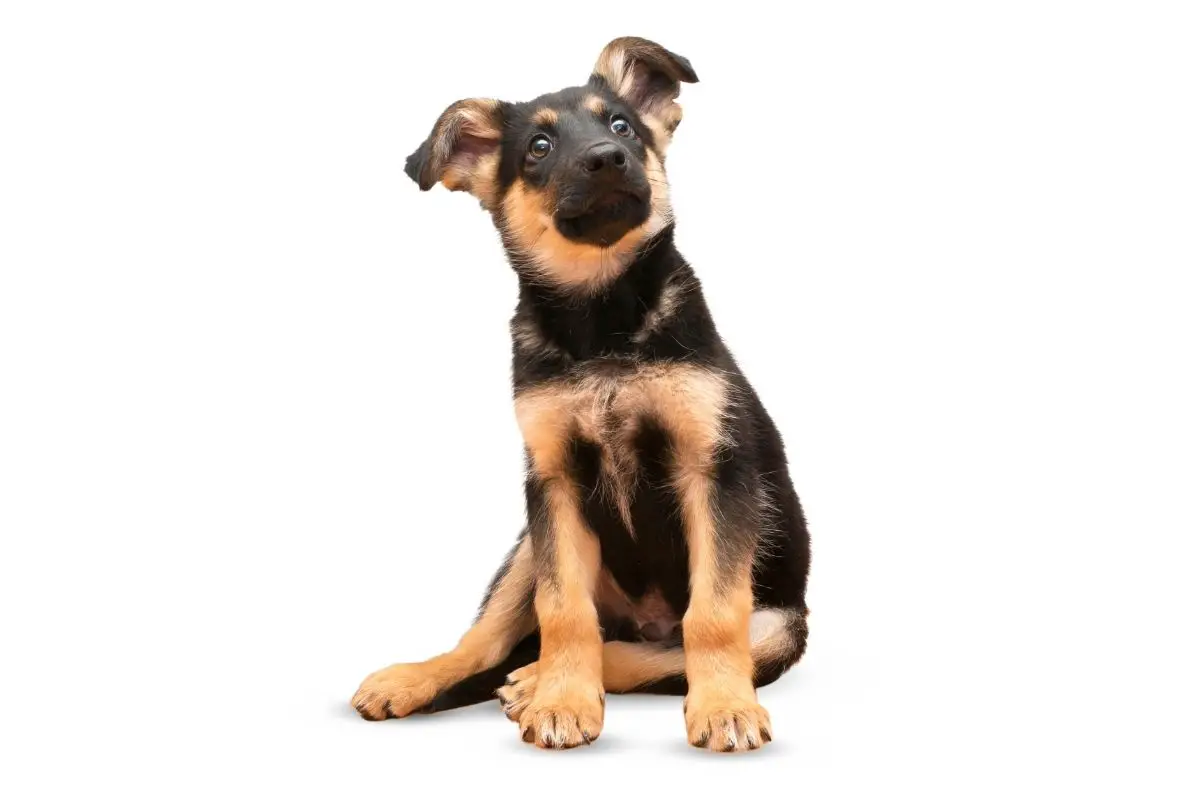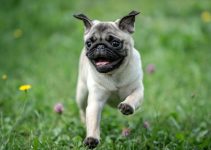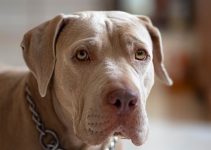German Shepherds are known for their intelligence and trainability, and as puppies they have a lot of energy to burn off.
They can be very playful and energetic dogs, but they also need plenty of exercise and mental stimulation.
If you’re looking for an active dog that will keep you on your toes, the German Shepherd is definitely one of the best breeds for you!
This breed is also known for their large ears, which go through different stages of development throughout their lives.
With this in mind, we are going to be taking a look at the different stages that a German Shepherd puppy’s ears will go through, as well as how to go about caring for your dog’s ears too.
But first, let’s take a look at the origins of this beautiful dog breed.
Contents
The History Of The German Shepherd Dog
The German Shepherd has been around since the 1800s, but it wasn’t until the early 1900s that the breed became more popular with the general public.
It was then that people began breeding them for specific traits, such as size, temperament, and appearance.
The German Shepherd is still considered one of the most intelligent and trainable dog breeds today, and they are often used as guide dogs, search-and-rescue dogs, police dogs, and even guard dogs.
What Kind Of Ears Does A German Shepherd Have?
A German Shepherd puppy’s ears start out small, and gradually get bigger over time. This is because the ears grow from cartilage, not skin, so they don’t actually develop until after birth.
As the ears continue to grow, they become more sensitive and eventually turn into the mature adult ears seen today.
When a German Shepherd puppy reaches adulthood, their ears will measure between 3 inches and 4 inches long.
Does A German Shepherds Ears Stand Up?
When a German Shepherd puppy reaches maturity, their ears will stand up straight, rather than drooping down like a normal dog’s.
This is due to the fact that the cartilage inside the ear doesn’t develop until later in life, so the ears won’t be able to support themselves properly until then.
You should be aware, though, that if your German Shepherd starts showing signs of hearing loss, they may begin to droop their ears.
This is something that needs to be checked out by a vet immediately.
German Shepherd Puppies Ear Development
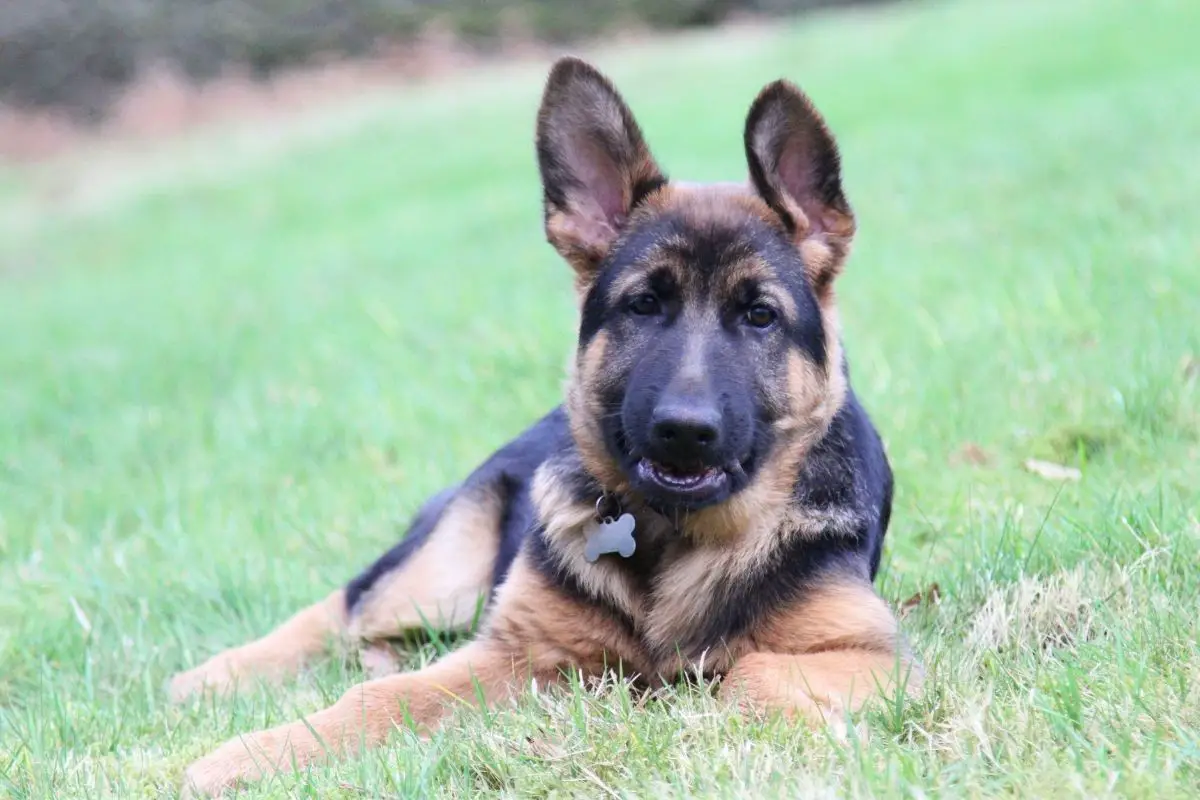
As mentioned above, German Shepherds develop their ears from birth. However, there are three distinct phases that they go through during their lifetime:
Ear Formation
When the puppy is firstborn, their ears are covered in soft tissue.
Over the next few weeks, this tissue hardens and becomes denser, giving the puppy’s ears their characteristic shape.
Ear Development
After the puppy has reached approximately four months old, their ears will start to form proper cartilage.
This process takes several months and is usually complete when the puppy reaches six or seven months old.
Adult Ears
At around two years old, the puppy’s ear will reach its final stage of development.
By this point, the cartilage inside the puppy’s eardrum will have hardened, making the eardrums larger and more resistant to damage.
In addition, the outer part of the ear will also have developed into a protective layer called the pinna.
Let’s take a closer look at this ear development as a German Shepherd puppy grows.
Cartilage Ear Development
The first phase of ear development occurs shortly after birth. During this period, the puppy’s ears are still very soft and floppy, and can easily be damaged.
The second phase begins once the puppy has been weaned.
Around five to eight weeks old- or a month to two months of age- the puppy’s ears will begin to grow longer and thicker. This growth is caused by the formation of new cartilage inside the ear.
As the puppy continues to eat solid food, the cartilage develops into bone.
The third phase starts when the puppy is about 12 months of age. At this time, the bones inside the ear will have formed into a strong structure, which gives the puppy’s eardrum a firm base.
Once the puppy has reached adulthood, his ears will continue to develop for another year or so. However, they will no longer undergo any significant changes.
German Shepherd Ears At Adulthood
At around 2 years old, the German Shepherd puppy will reach the end of the developmental stages listed above.
The cartilage inside the eardrum will have grown large enough to provide the necessary strength for the puppy’s hearing.
In addition, the pinnae (the outer portion of the ear) will have begun to harden, providing protection against external factors such as wind and rain.
At this point, the German Shepherd’s ears will remain unchanged.
These ear stages can vary depending on the individual puppy, but they do give us a good idea of what we should expect to happen over the next year.
If your puppy is at any of these stages, make sure that you pay attention to how his or her ears are developing.
If you notice anything unusual, such as if one ear looks different from the other, then you need to take action right away.
Even though most puppies don’t experience any health problems related to their ears, there are still things that you can do to ensure that your puppy’s ears stay healthy throughout his or her entire life.
Common Ear Problems For German Shepherds
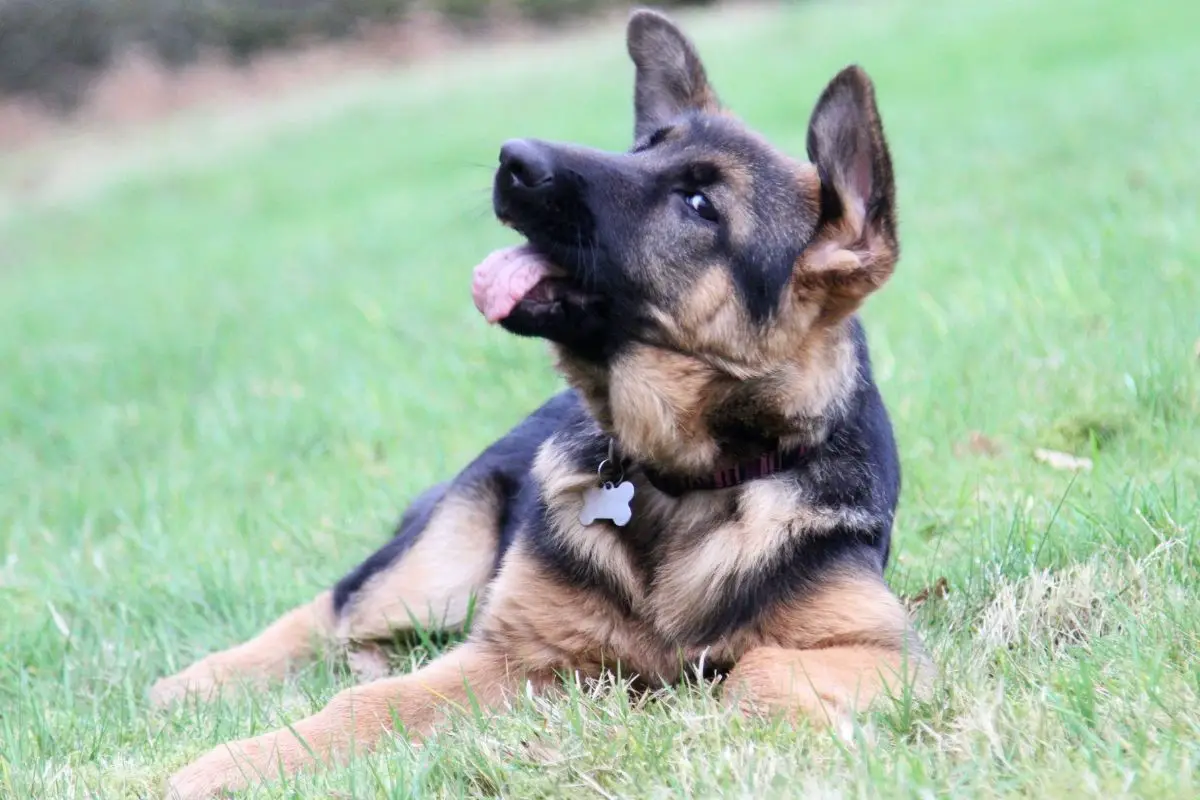
There are many different types of ear conditions that can affect German Shepherds. Some of them are very common, while others are less common.
It’s important to know what to watch out for in order to avoid having your dog suffer from an ear issue.
Ear Infections
One of the most common ear infections that German Shepherds can suffer from is otitis externa.
Otitis externa is caused by bacteria entering through the eardrum. This type of infection is quite painful, and it can cause the eardrums to swell and become red.
Fortunately, this condition doesn’t last forever, and it usually clears up within a week or two. However, if left untreated, otitis externa can lead to more serious issues.
For example, if the infection spreads into the middle ear, then it could result in permanent hearing loss.
Another type of ear infection that German Shepherds often develop is otitis media.
Otitis media is much less severe than otitis externa, but it does require treatment nonetheless. It occurs when fluid builds up between the eardrum and the inner ear, which causes pain and discomfort.
Otitis media can also lead to hearing loss, so it’s important to seek medical care immediately if you suspect that your dog may have this problem.
Ear Diseases
Another common concern that German Shepherds face is deafness. Although this condition isn’t always directly linked to ear disease, it’s possible that it could occur due to the same underlying issue.
Deafness can be temporary, or it can be permanent. The latter is typically caused by damage to the inner ear.
In either case, it’s best to get your dog checked out by a veterinarian as soon as you notice any signs of hearing loss.
Hearing Loss
Hearing loss is another common condition that German Shepherds sometimes struggle with. Unfortunately, it’s very difficult to determine exactly why this happens.
One thing that’s certain is that it’s something that needs to be addressed because it will continue to worsen over time.
You should definitely visit your vet to suspect that your dog is suffering from some kind of hearing loss.
Ear Mites
If your dog has been exposed to fleas or ticks, then he or she might end up getting mites.
These mites live in the ear canal, and they can cause a lot of damage. They’re especially problematic for dogs who spend a lot of time outdoors, since they can easily pick up parasites like fleas and ticks.
To prevent this problem, you should keep your dog indoors whenever possible. Also, you should clean his or her ears regularly using a cotton ball soaked in warm water.
Ear Problems Caused By Foreign Objects
Foreign objects such as toys, and even hairballs can enter the ear canal and cause issues.
As long as these items aren’t too big, they shouldn’t pose a threat to your dog’s health. However, if they do become lodged inside the ear, then they can cause all sorts of trouble.
Ear Disease Prevention Tips
The first step in preventing ear problems for your German Shepherd is to keep them clean.
Make sure that their ears are dry before bathing them, and make sure that they don’t get wet during swimming or other activities.
If you notice that there’s an excessive amount of wax build-up in your dog’s ears, then you should use a cotton swab to remove it. You should also take extra care not to let him or her lick their own ears.
Finally, you should try to avoid exposing your dog to things that could potentially harm their ears.
If you think that your dog may have an ear infection, don’t hesitate to take him or her to the vet right away.
However, even though there are treatments available, antibiotics aren’t always necessary. Sometimes, simply cleaning the ear canal with warm water and saline solution is enough to clear things up on its own.
If you do decide to give your dog antibiotics, make sure that you use them only under the guidance of a veterinary professional. Some medications can cause side effects, such as diarrhea or vomiting.
If your dog shows any of these symptoms, stop giving him or her the medication until they subside.
Although ear diseases are fairly common among German Shepherds, they can still be prevented.
By following some of these basic guidelines, you can help ensure that your pet doesn’t suffer from any serious health issues down the road.
Final Thoughts
A German Shepherd’s ears will naturally change as they grow older. They will start to look different, and their size will increase, as is expected in a healthy dog’s development.
Their ears should eventually perk up on their own as your puppy reaches adulthood, but if not, there is no need to worry.
As mentioned, every dog is different when it comes to the growth and development of their ears, and German Shepherds are no exception.
If you do ever have any concerns about the health of your German Shepherd’s ears- and you have been unable to help the problem yourself- always remember to consult a qualified veterinarian.
As long as you help to keep your German Shepherd’s ears healthy, they are sure to remain happy and healthy family pets for many years to come!
